
Have you ever given landscape illustration a go?
If you have, you might have heard about an interesting principle called atmospheric perspective. Discussed in both our “Introduction to Color Theory” and “Introduction to Landscapes” courses, it is foundational to creating realistic landscape illustrations.
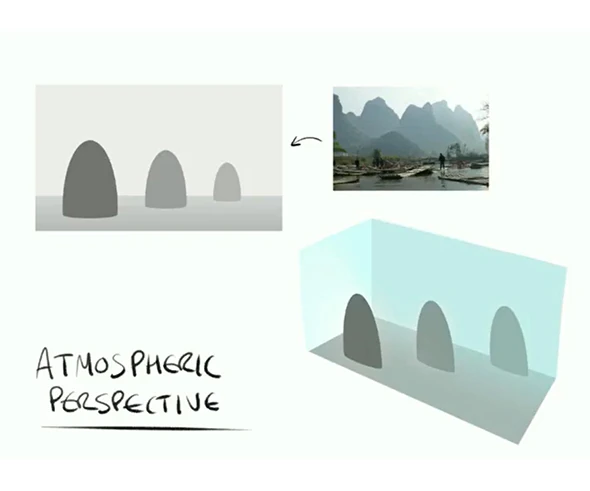
Atmospheric perspective refers to the effects of particles in the air on the way the human eye perceives our environment. Have you ever seen mountains that are really far away?
You may have noticed that they can appear hazy and more cool-toned (blue/ purple) than areas of the landscape that are close to you.
This effect is caused by particles in our atmosphere scattering the light we receive from the sun. The more particles that are scattered between you and an object, the more hazy, low-contrast, and cool-toned they will appear.
This effect is easy to see in open landscapes during the daytime.
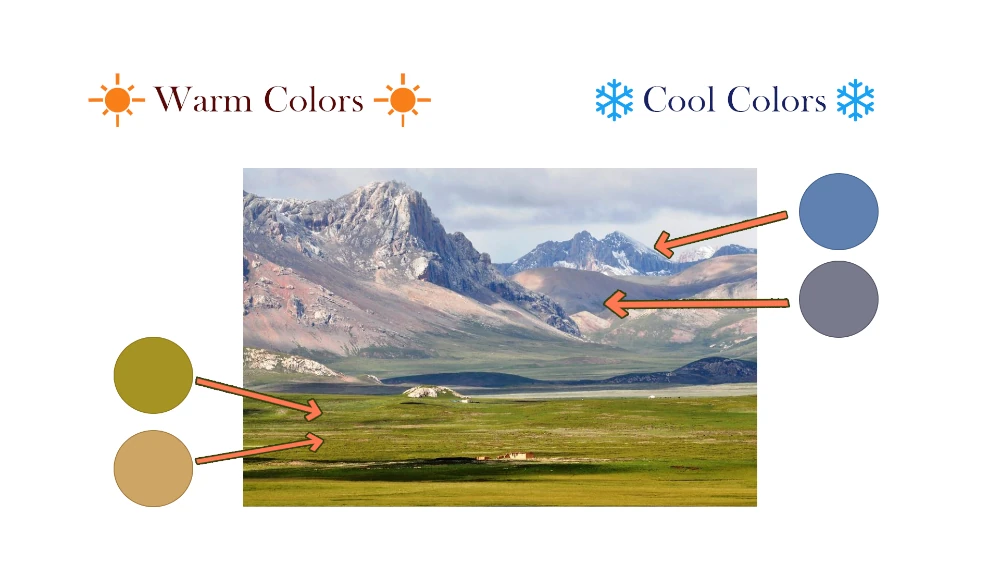
Night-time scenes present unique challenges for artists aiming to depict a realistic atmospheric perspective. Unlike daytime scenes, where the sky and sun are the primary light sources, night scenes are much more complex due to artificial lighting sources such as streetlights, houses, etc.
Understanding how atmospheric perspective works in these scenarios is crucial for creating a convincing landscape painting.
Atmospheric perspective still applies in night-time scenes, but the presence of streetlights and other artificial sources alters its effects. For example, in scenarios where you may have cooler tones on distant objects, the presence of a warm street light may interrupt this.
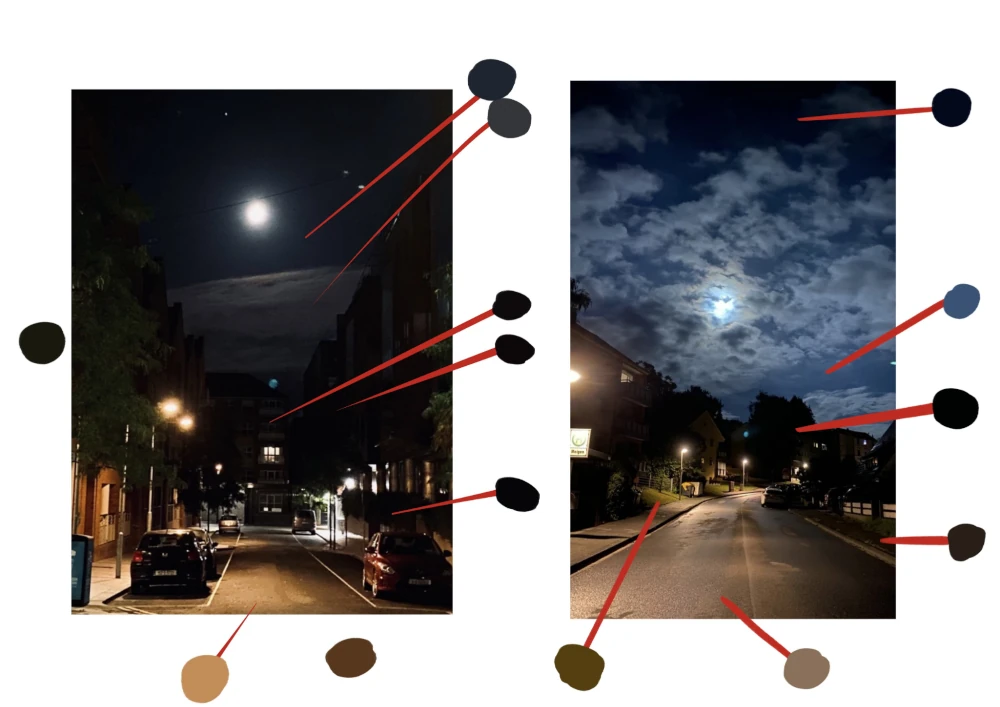
Natural night-time scenes (without artificial light) predominantly feature cool gray tones with minimal color variation. Colors tend to be muted and dark, creating a cohesive and subdued atmosphere. However, areas influenced by artificial light sources may exhibit muted warm tones and slightly higher saturation and contrast levels.
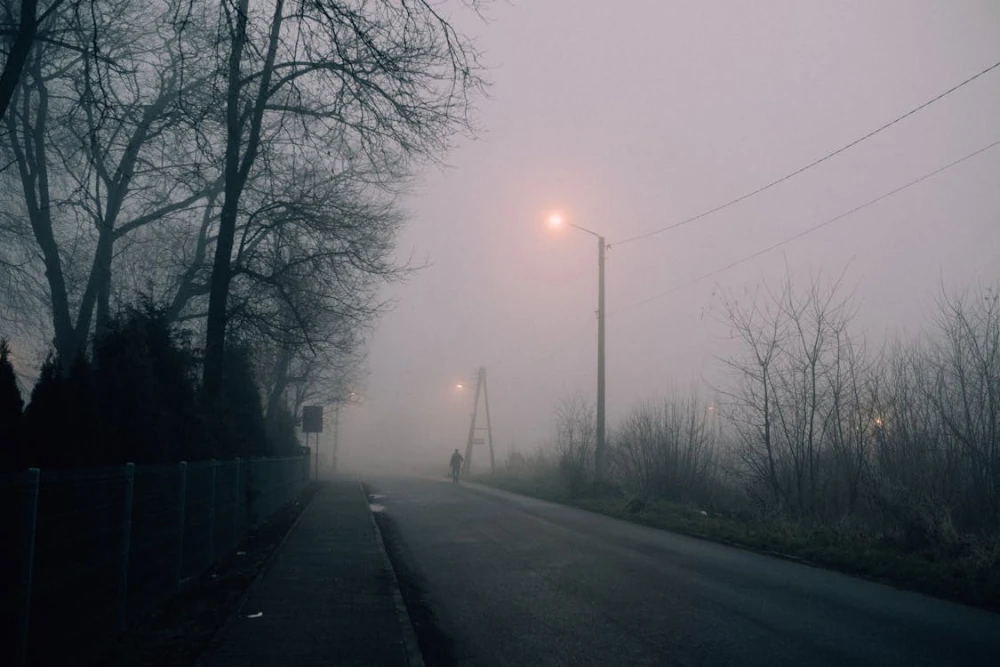
Night-time scenes often exhibit a subtle fog or haze effect over distant objects, enhancing the perception of depth. This phenomenon varies depending on the environment so it is important to study references similar to the intended lighting scenario to capture atmospheric effects accurately.
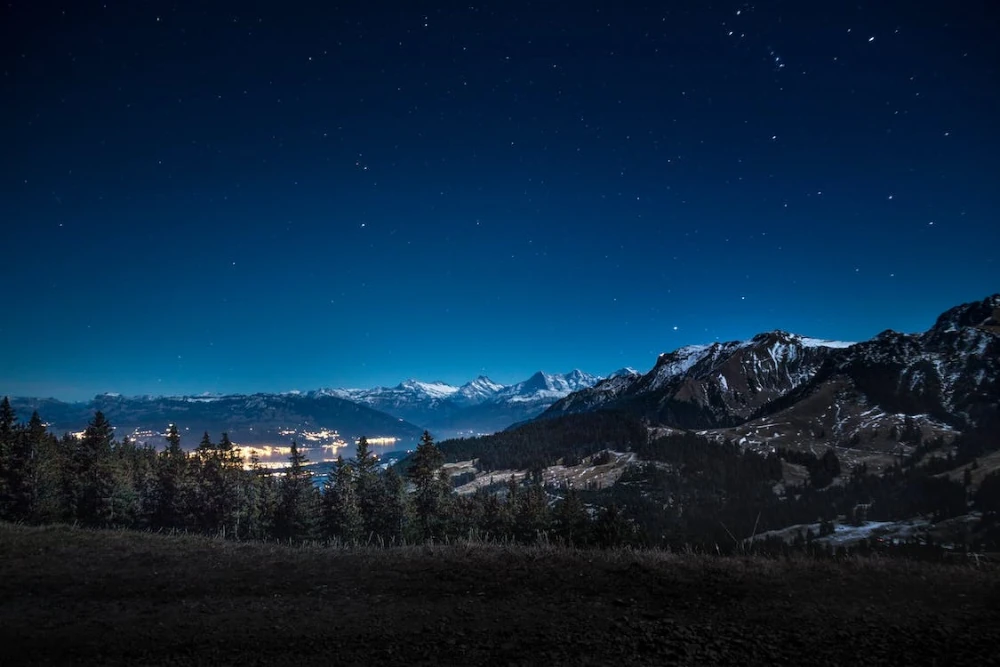
Just like in day-time scenes the sky should not be the darkest part of your illustration. Elements such as stars, clouds, or the moon emit faint light, preventing the sky from appearing pitch black.
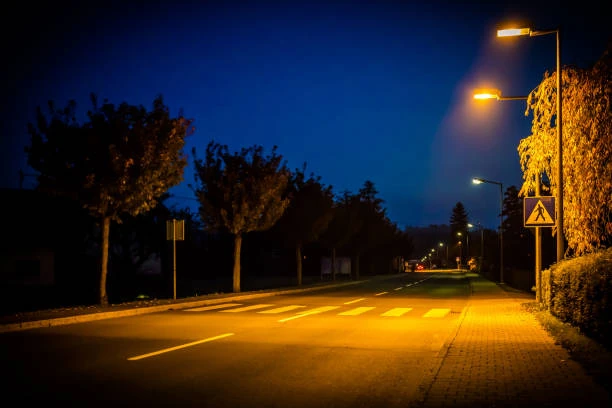
Objects in the distance may appear as silhouettes with reduced detail and contrast due to limited lighting. In these cases the night-sky acts as a form of backlighting, so even in the haze your distant objects may have a clear edge where they meet the sky. Otherwise they should be muted tones with little to no detail.
Despite variations in lighting, objects in the distance should still experience a loss of saturation and be more cool-toned to show the atmospheric perspective. Any areas in particularly low lighting will also be low in saturation, leading to a much smaller saturation range within your work. Because of this, you will have to rely on subtle changes in value and saturation to convey forms in your work.
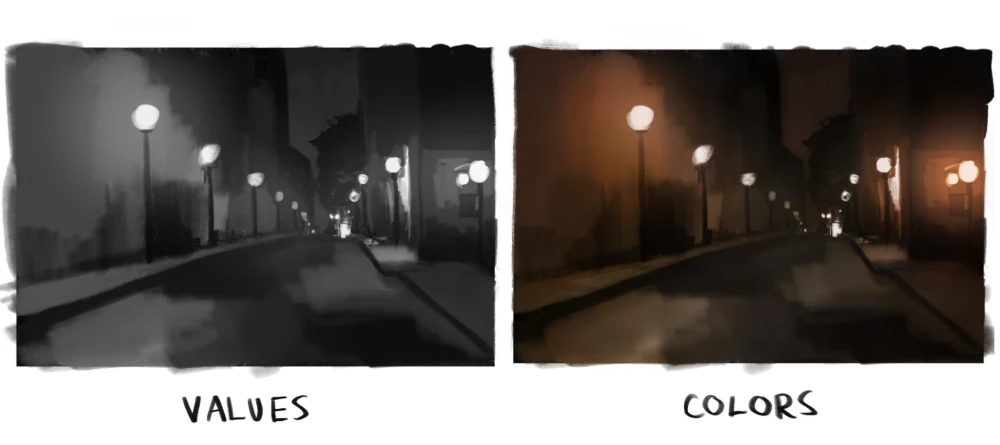
As you can see in the above example, artificial lighting changes the way the values and colors interact in the environment. The distant buildings are low contrast and cool toned but remain dark in value due to being silhouetted against the sky. The foreground of the image has more contrast in values and warm tones.
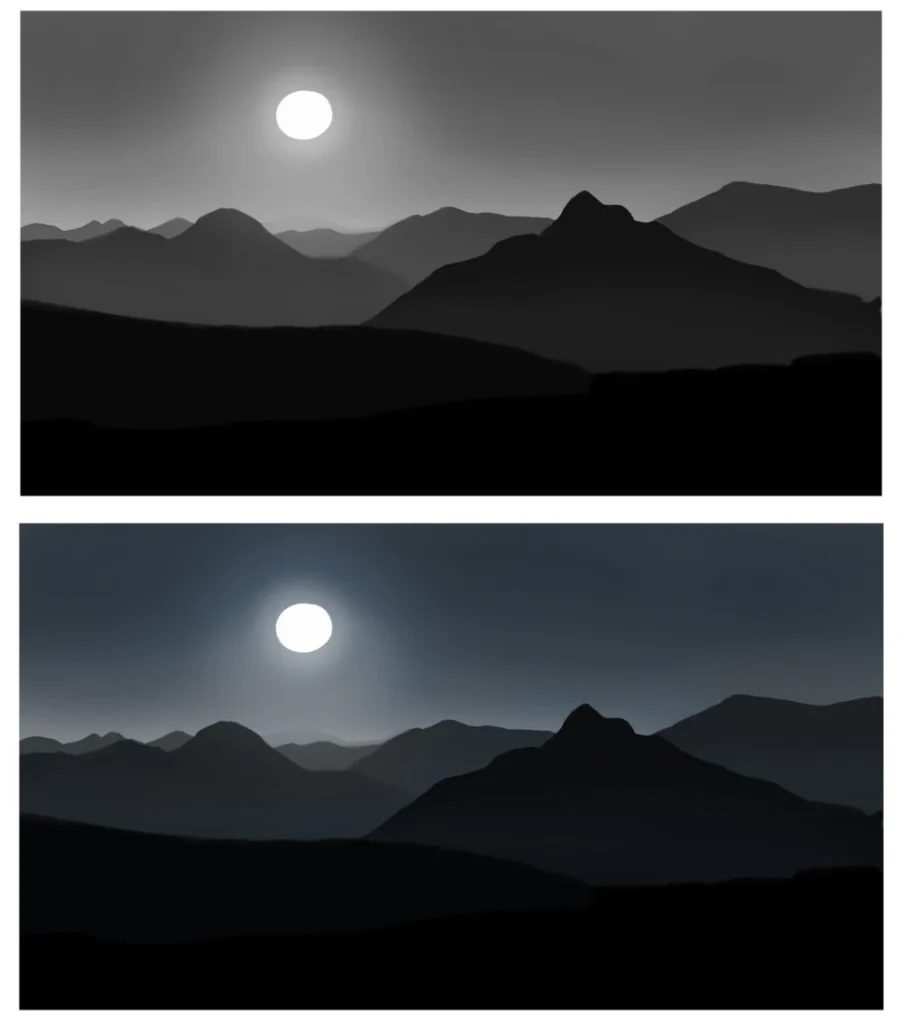
Above is an example of how atmospheric perspective acts on a night-time scene without any artificial light source. As you can see it is quite similar to what you might see in a day-time scene. The values grow lighter the further into the background you go and the colors are muted over the entire illustration, leaning towards a dull blue.
Mastering atmospheric perspective in night-time scenes requires careful observation, understanding of light sources, and consideration of color and saturation. By studying references and applying the principles outlined in this guide, you can create captivating and realistic illustrations that accurately convey the depth and atmosphere of night environments.
Want to learn more about landscape illustration?
Why not check out our amazing course “Introduction to Landscapes” taught by talented artist Philip Sue!
Rhea is an Australian artist with a Bachelor of Animation and Art Direction. She is passionate about illustration and has worked as a Producer and Concept Artist on multiple short films! She aspires to spread her love of art to 21 Draw students everywhere!
Excelente e impresionante. Los artistas de dibujos, tanto para historietas, dibujos animados, caricaturas, etc., son fabulosos. Felicitaciones!!!
Balas